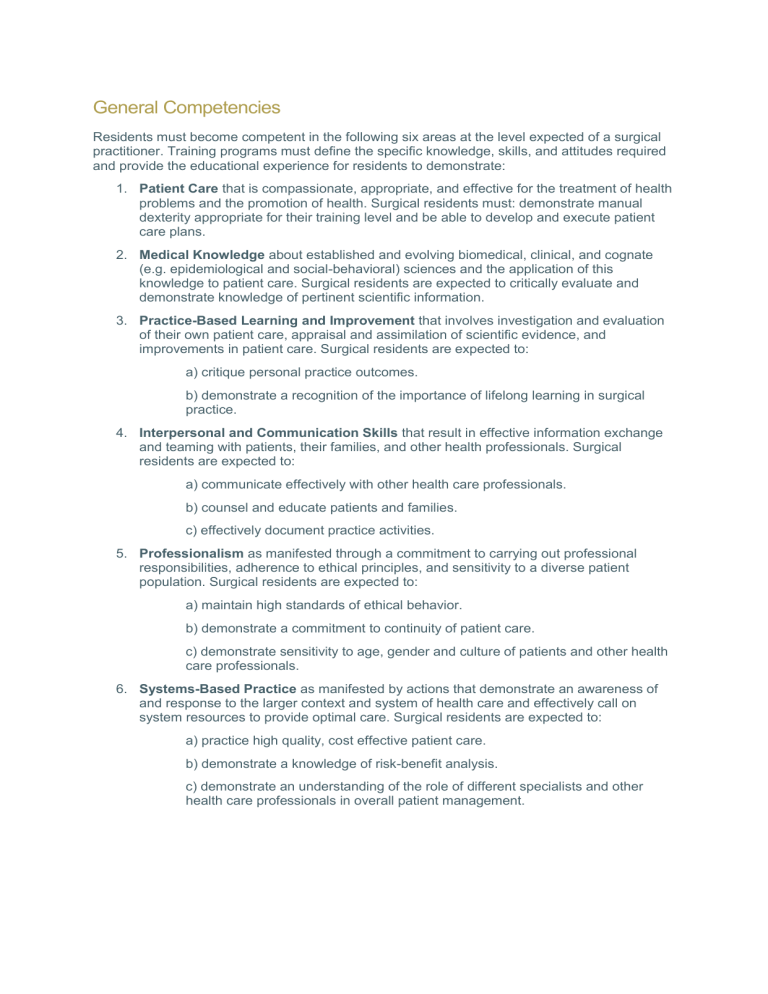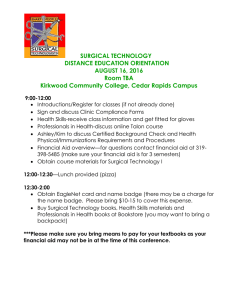
General Competencies Residents must become competent in the following six areas at the level expected of a surgical practitioner. Training programs must define the specific knowledge, skills, and attitudes required and provide the educational experience for residents to demonstrate: 1. Patient Care that is compassionate, appropriate, and effective for the treatment of health problems and the promotion of health. Surgical residents must: demonstrate manual dexterity appropriate for their training level and be able to develop and execute patient care plans. 2. Medical Knowledge about established and evolving biomedical, clinical, and cognate (e.g. epidemiological and social-behavioral) sciences and the application of this knowledge to patient care. Surgical residents are expected to critically evaluate and demonstrate knowledge of pertinent scientific information. 3. Practice-Based Learning and Improvement that involves investigation and evaluation of their own patient care, appraisal and assimilation of scientific evidence, and improvements in patient care. Surgical residents are expected to: a) critique personal practice outcomes. b) demonstrate a recognition of the importance of lifelong learning in surgical practice. 4. Interpersonal and Communication Skills that result in effective information exchange and teaming with patients, their families, and other health professionals. Surgical residents are expected to: a) communicate effectively with other health care professionals. b) counsel and educate patients and families. c) effectively document practice activities. 5. Professionalism as manifested through a commitment to carrying out professional responsibilities, adherence to ethical principles, and sensitivity to a diverse patient population. Surgical residents are expected to: a) maintain high standards of ethical behavior. b) demonstrate a commitment to continuity of patient care. c) demonstrate sensitivity to age, gender and culture of patients and other health care professionals. 6. Systems-Based Practice as manifested by actions that demonstrate an awareness of and response to the larger context and system of health care and effectively call on system resources to provide optimal care. Surgical residents are expected to: a) practice high quality, cost effective patient care. b) demonstrate a knowledge of risk-benefit analysis. c) demonstrate an understanding of the role of different specialists and other health care professionals in overall patient management.
